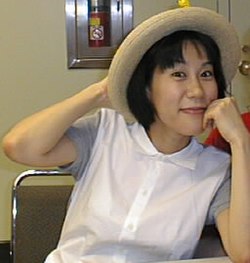B

- Dona Bailey - American game programmer who, along with Ed Logg in 1981, created the arcade video game Centipede . [4] [5]
- Laura Bailey - American voice actress.
- Ellen Beeman - American fantasy and science fiction author, cofounder the industry group Women in Games International, and computer game designer/producer since the 1990s. [6] Since 2014, she has been a faculty member at DigiPen Institute of Technology. [7]
- Debbie Bestwick - British entrepreneur, founder of Team17.
- Amy Briggs - American video game implementor known for creating Plundered Hearts , an interactive fiction computer game published by Infocom in 1987.
- Danielle Bunten Berry - American game designer and programmer, known for the 1983 game M.U.L.E. (one of the first influential multiplayer games), and 1984's The Seven Cities of Gold . She was the recipient of a Lifetime Achievement Award from the Computer Game Developers Association. [8]
- Connie Booth - American business executive as vice-president of Product Development at Sony Interactive Entertainment and advocate of many of SIE's first-party franchises since Crash Bandicoot . [9]
- Mattie Brice - American video game designer, critic, and industry activist.
- Ashly Burch - American voice actress.










